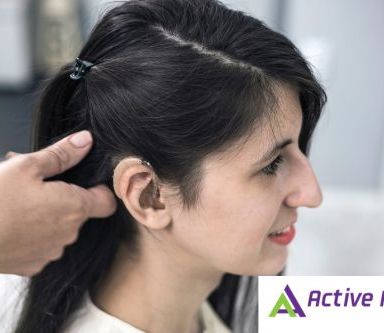
Hearing aids are sophisticated devices designed to improve hearing for individuals with hearing loss. They work by amplifying sounds from the environment and delivering them to the ear canal, where they can be detected by the auditory system. Let’s delve into the mechanics of how hearing aids Omaha work!
Microphones
Hearing aids are equipped with one or more microphones that capture sounds from the surrounding environment. These microphones convert sound waves into electrical signals, which are then processed by the hearing aid's internal circuitry.
Signal processing
The electrical signals captured by the microphones are processed by the hearing aid's digital signal processor (DSP). The DSP analyzes the incoming sounds and applies amplification and processing algorithms to enhance speech intelligibility and improve overall sound quality.
Amplification
Once the signals have been processed, the hearing aid amplifies them to make them louder and more audible to the wearer. The amplification level can be adjusted based on the individual's hearing loss and listening preferences.
Receiver and speaker
The amplified signals are then sent to a receiver, which converts the electrical signals back into sound waves. The receiver delivers the amplified sounds to the ear canal through a small speaker or speaker tube, where they are detected by the auditory system.
Customization
Modern hearing aids offer a wide range of customizable features and settings to meet the unique needs of each individual. These may include directional microphones for better speech understanding in noisy environments, feedback cancellation to reduce whistling or squealing and noise reduction algorithms to minimize background noise. There are even hearing aids specifically designed to mask tinnitus.
Fitting and adjustment
Hearing aids are fitted and programmed by a qualified audiologist or hearing care professional. During the fitting process, the audiologist will assess the individual's hearing loss, preferences and lifestyle needs to ensure that the hearing aids are optimized for maximum benefit.
Ongoing care
After the initial fitting, regular follow-up appointments are typically scheduled to monitor the individual's progress and make any necessary adjustments to the hearing aids. Ongoing care and maintenance, including cleaning, battery replacement and periodic hearing evaluations, are essential for optimal performance and long-term satisfaction with hearing aids.
Visit us for hearing aids Omaha
Hearing aids work by capturing, processing and amplifying sounds to improve hearing and enhance communication for individuals with hearing loss. By leveraging advanced technology and personalized fitting, hearing aids can significantly improve quality of life and empower individuals to reconnect with the world around them. Contact us today if you or a loved one are experiencing hearing loss symptoms, and see how hearing aids Omaha can help!






Comments